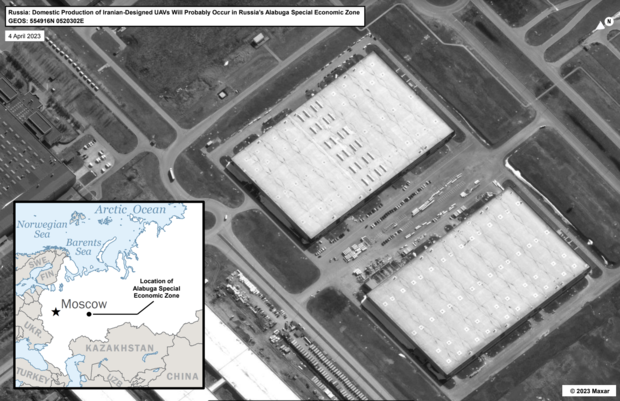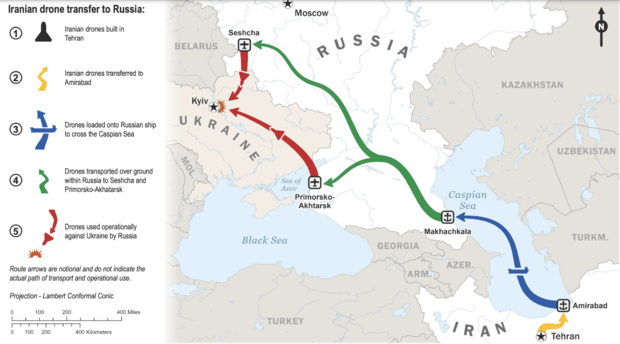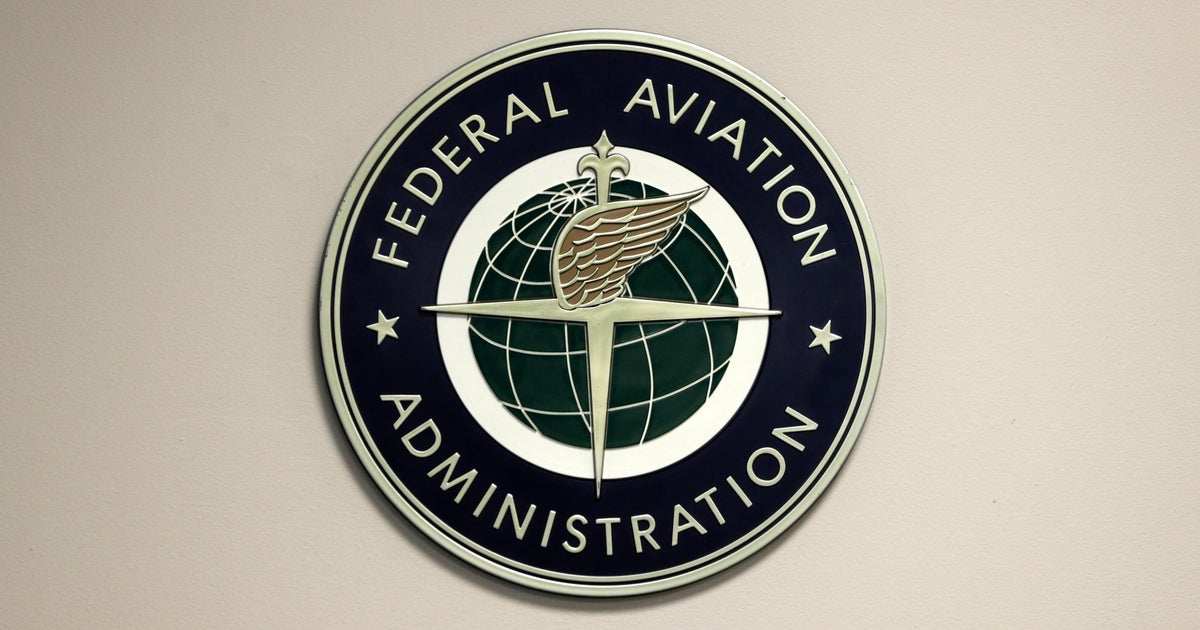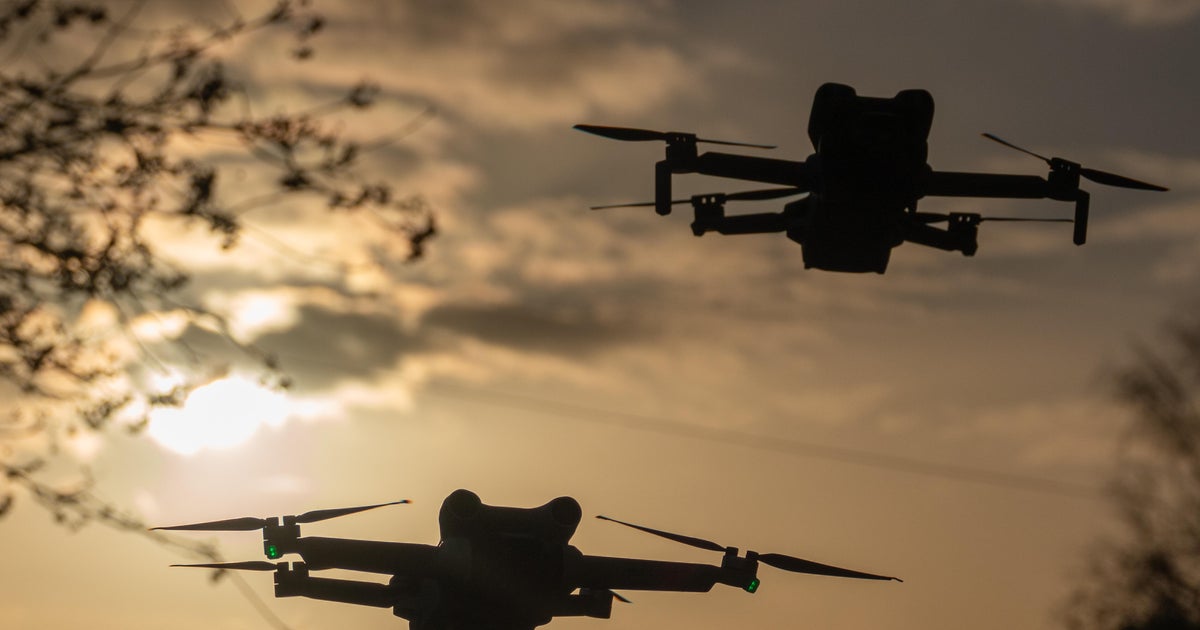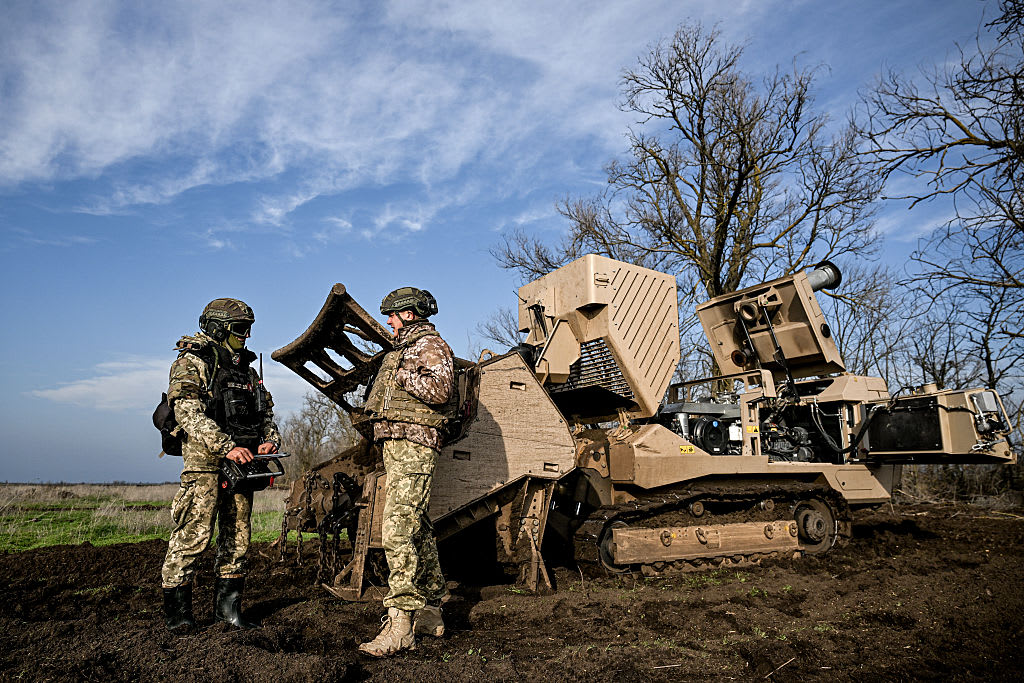Iran helping Russia build plant to manufacture drones for likely use in Ukraine, White House says
Iran has been sending material to Russia for the construction of a domestic facility the U.S. believes will be used to build drones intended for Moscow's war in Ukraine, according to newly declassified intelligence, in the latest indication of a deepening military partnership between Tehran and Moscow.
The drone manufacturing plant could be operational as soon as next year, the White House said Friday.
It released satellite imagery showing the suspected facilities being constructed in the Alabuga Special Economic Zone, about 600 miles east of Moscow.
The administration also released a graphic illustrating the transportation path for what it said were "hundreds" of attack drones that had already been shipped from Iran to Russia.
"The drones are built in Iran, shipped across the Caspian Sea, from Amirabad, Iran to Makhachkala, Russia, and then used operationally by Russian forces against Ukraine," said National Security Council spokesman John Kirby, adding that Russia had recently used Iranian drones to strike Kyiv, Ukraine's capital.
At a press briefing last month, Kirby warned that the Iran-Russia military partnership was "expanding," noting Russia was likely to request more advanced models from Tehran. Last year, the Biden administration also released images of Russian officials visiting Iran's Kashan Airfield to view weapons-capable drones.
Soon after their visit, Russian President Vladimir Putin traveled to Tehran in his first international trip since launching the Ukraine invasion, to meet with Iranian and Turkish leaders.
"The support is flowing both ways: from Iran to Russia, and from Russia to Iran," National Security Council spokesman John Kirby said Friday. "Russia has been offering Iran unprecedented defense cooperation, including on missiles, electronics, and air defense," he said.
U.S. officials have previously said the relationship between Moscow and Tehran was likely to remain transactional; in July last year, CIA Director William Burns said there were likely "limits" to the partnership.
"Both federally sanctioned countries, both looking to break out of political isolation as well," Burns said at the annual Aspen Security Forum in Colorado. "But if they need each other, they don't really trust each other, in the sense that they're energy rivals and historical competitors," he said.
The U.S. and the European Union have previously sanctioned the Iranian drone industry and alleged procurement networks working to supply it with equipment.
The White House also said Friday it would release a new government advisory to "help governments and businesses put in place measures to ensure they are not inadvertently contributing" to Tehran's drone program.

